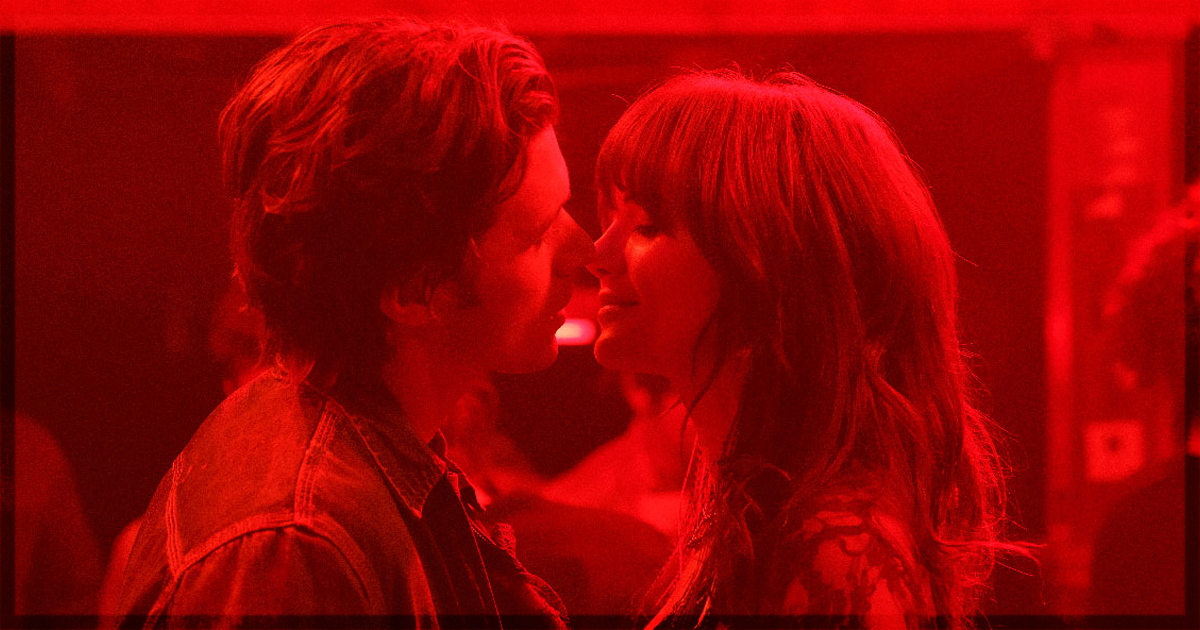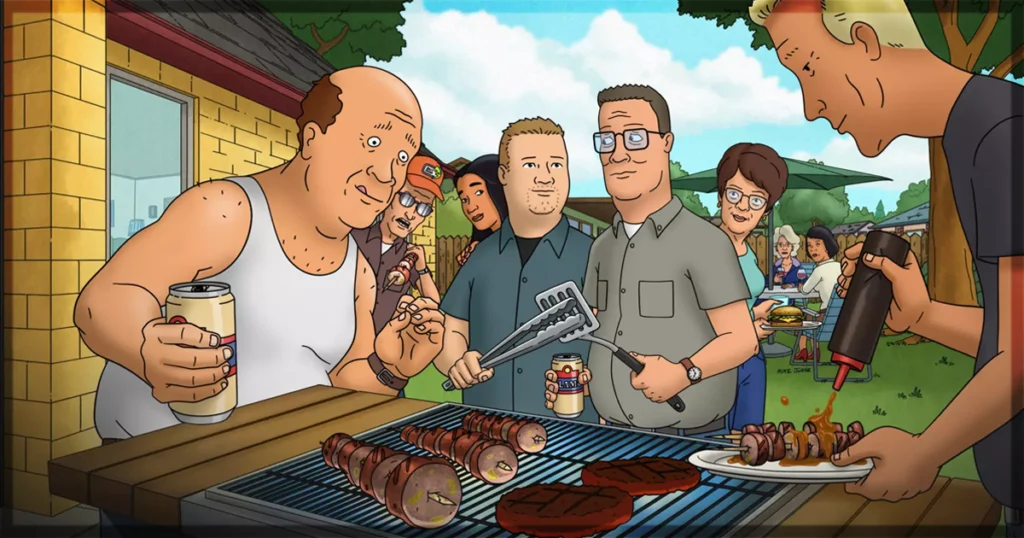I got married for the first time when I was 23. I was pregnant just a few months later, and that kid recently celebrated his 27th birthday. I’m no longer with my first husband, and it’s always interesting to consume media that helps me continue to process that split, even more than a decade later. Charlie Harper, from co-directors Tom Dean and Mac Eldridge, is one of those movies.
Charlie Harper is told in a nonlinear fashion, not unlike last year’s We Live In Time, though this film felt more successful in the way it used that method. Through the film, we follow Charlie (Nick Robinson) and Harper (Emilia Jones), watching their relationship over the course of five years. We are privy to all of the excitement of discovery and then the slow unraveling of a couple who didn’t have a firm grasp of who they were when their relationship began. Seeing that play out in a jumbled timeline allows us to avoid placing blame on one or the other.
The pair meet in high school, and their courtship blossoms as they trade CDs that they burn for one another with their favorite songs. The last one that Charlie shares with Harper includes only one song, Break It To Me Gently, by Brenda Lee (a brief song whose lyrics seem to be the inspiration for the entire film). He tells her not to play it too much so that the song doesn’t become less special. The song becomes a bit of an anchor point throughout the film as we hear it at key moments in their lives.
The two bond not simply over music, but there is also a rebellious spirit that plays into their relationship. Charlie shares that he has no interest in attending college, content to enjoy knowing things without showing them off. Harper is also uninterested in higher education, but she shares that her goal is to become a professional chef. Her well-off parents are disappointed by this choice, and Charlie plays into that to some degree.
The two eventually agree to go together to New Orleans, where Harper can pursue her dreams. However, the longer they are there, the more their differences begin to cause friction. This is where the nonlinear aspect of Charlie Harper works. Seeing some of these fights before we know what predicated them allows us to cast blame with a wider net. We are able to see how each of them has messed up and contributed to the demise of their relationship.
One thing that is both a help and a hindrance to Charlie Harper is the use of voice-over narration. On one hand, it does help the audience to keep track of some of the events that are happening, giving us some insight into what the characters are experiencing. On the other hand, it often feels like it is pointing out self-evident things that the film is showing, making it seem hand-holdy and superfluous. The reason for the voice-over is ultimately clever, but because of the way the film unfolds, there’s no good way to reveal that earlier, making it mostly grating for about two-thirds of the film.
The other big flaw that Charlie Harper encounters is that it wants to show the story from both perspectives. And while there are times when that is done tremendously well, it doesn’t use that often enough to really make an impact. Memory is not always to be trusted, and including that element is interesting, but it needed to be used more frequently to have the impact that I think the filmmakers were going for. As it stands, it feels like more of an afterthought.
Even with some negative aspects, Jones and Robinson are electric in this film. Charlie and Harper feel like fully drawn characters, and that is no doubt due to the incredible personalities that the actors bring to the roles. We see characters that struggle with being controlling, that struggle with alcoholism, that struggle with contentment, and that struggle with anger, but we still root for them. We want them to be happy at the end of the film, and that is absolutely because these young actors make them feel like more than just their faults. Yes, they are imperfect, but we want them to succeed in whatever way they can.
A new love is intoxicating. It feels like it will last forever. And when you’re young, it’s hard to imagine just how difficult life can be. Speaking about their time in New Orleans, sleeping on a mattress on the floor and working crazy hours, Harper recalls, “It was worse than I pictured, and better than I imagined.” That is true for the memories many have of young love. It is ugly and exhausting and wonderful and exhilarating. Despite some of its flaws, Charlie Harper is able to capture that beautifully.


